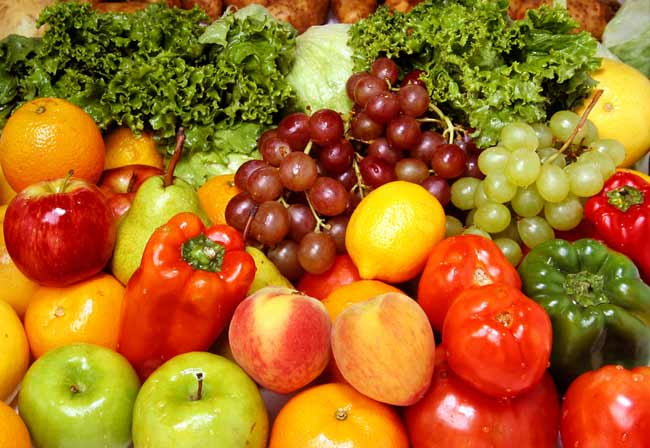Family Meals Help Kids Eat More Fruit & Veggies

Get the world’s most fascinating discoveries delivered straight to your inbox.
You are now subscribed
Your newsletter sign-up was successful
Want to add more newsletters?

Delivered Daily
Daily Newsletter
Sign up for the latest discoveries, groundbreaking research and fascinating breakthroughs that impact you and the wider world direct to your inbox.

Once a week
Life's Little Mysteries
Feed your curiosity with an exclusive mystery every week, solved with science and delivered direct to your inbox before it's seen anywhere else.

Once a week
How It Works
Sign up to our free science & technology newsletter for your weekly fix of fascinating articles, quick quizzes, amazing images, and more

Delivered daily
Space.com Newsletter
Breaking space news, the latest updates on rocket launches, skywatching events and more!

Once a month
Watch This Space
Sign up to our monthly entertainment newsletter to keep up with all our coverage of the latest sci-fi and space movies, tv shows, games and books.

Once a week
Night Sky This Week
Discover this week's must-see night sky events, moon phases, and stunning astrophotos. Sign up for our skywatching newsletter and explore the universe with us!
Join the club
Get full access to premium articles, exclusive features and a growing list of member rewards.
One or two family meals a week may help kids eat more fruits and vegetables, a new study suggests.
In the U.K. study, children whose families always ate meals together consumed 4.4 ounces (1.5 portions) more fruits and vegetables a day compared with children whose families never ate together.
And kids who had family meals just once or twice a week consumed 3.4 ounces (1.2 portions) more produce a day.
"Modern life often prevents the whole family from sitting round the dinner table, but this research shows that even just Sunday lunch round the table can help improve the diets of our families," said study researcher Meaghan Christian, of the University of Leeds.
Family meals may provide an opportunity for children to learn healthy eating habits from their parents or siblings, and are also an incentive to plan meals, the researchers said.
Cutting fruits and vegetables into smaller pieces also appeared to increase consumption. Children ate half a portion more of fruits and vegetables (1.4 ounces) if their parents said they always cut up these foods.
The majority of children in the United States, Europe and Australia don't consume the recommended daily amount of fruits and vegetables (five servings a day), the researchers said. [See 10 Ways to Promote Kids' Healthy Eating Habits].
Get the world’s most fascinating discoveries delivered straight to your inbox.
Previous research has shown that children who dine with their families are less likely to be obese and more likely to eat healthy foods.
The new study's findings are based on information from 2,000 elementary school children in London, with an average age of 8. Parents answered questions about their child's food consumption over the last day, as well as how often the family ate meals together. Sixty-three percent of the kids did not eat the recommended five servings of fruits and vegetables a day.
Because the results are based on parents' reports of their kids' food intake, they may be subject to bias, the researchers noted. Parents may overreport the amount of fruits and vegetables their child eats because a healthy diet is socially desirable. But the parents of children in the study did watch a DVD to learn how to properly report their child's food intake, the researchers said.
The study is published today (Dec. 19) in the Journal of Epidemiology & Community Health.
Pass it on:One or two family meals a week may increase a child's fruit and vegetable intake.
Follow Rachael Rettner on Twitter @RachaelRettner, or MyHealthNewsDaily @MyHealth_MHND. We're also on Facebook & Google+.

Rachael is a Live Science contributor, and was a former channel editor and senior writer for Live Science between 2010 and 2022. She has a master's degree in journalism from New York University's Science, Health and Environmental Reporting Program. She also holds a B.S. in molecular biology and an M.S. in biology from the University of California, San Diego. Her work has appeared in Scienceline, The Washington Post and Scientific American.
 Live Science Plus
Live Science Plus










